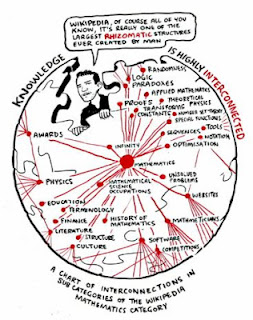The human mind is both beautiful and frustrating. We have minds that can contemplate the meaning of infinity and consciousness, on the one hand, and we can be blind to what's right in front of us, we can lie to ourselves, we can simultaneously embrace mutually exclusive beliefs, and we can be in complete denial about the most obvious of things, especially when those things have something challenging to say about our identity.
There's a clinical condition called anosognosia. Patients with this condition have suffered some sort of disability, but are completely unaware of it (you can watch V.S. Ramachandran to learn more). But it doesn't have to be only a medical condition. Anosognosia, or some variation thereof, affects us all in various ways and to varying degrees. At bottom, it's a question of self-knowledge and whether our beliefs about ourselves are consistent with the available evidence.
So, philosopher Daniel Dennett started to wonder about a possibly related condition: atheism-denial :) Are you one? If you're not sure, here's how you can tell (and learn some philosophy along the way, like the use-mention fallacy, thanks to the funny examples he uses to make various conceptual points). And before you dismiss the idea, just consider that if there's a good chance your own pastor (rabbi, mula, swami, take your pick) might be an atheist, maybe you are too...
You know what I would be surprised to find? A redneck atheist :)
There's a clinical condition called anosognosia. Patients with this condition have suffered some sort of disability, but are completely unaware of it (you can watch V.S. Ramachandran to learn more). But it doesn't have to be only a medical condition. Anosognosia, or some variation thereof, affects us all in various ways and to varying degrees. At bottom, it's a question of self-knowledge and whether our beliefs about ourselves are consistent with the available evidence.
So, philosopher Daniel Dennett started to wonder about a possibly related condition: atheism-denial :) Are you one? If you're not sure, here's how you can tell (and learn some philosophy along the way, like the use-mention fallacy, thanks to the funny examples he uses to make various conceptual points). And before you dismiss the idea, just consider that if there's a good chance your own pastor (rabbi, mula, swami, take your pick) might be an atheist, maybe you are too...
You know what I would be surprised to find? A redneck atheist :)








































